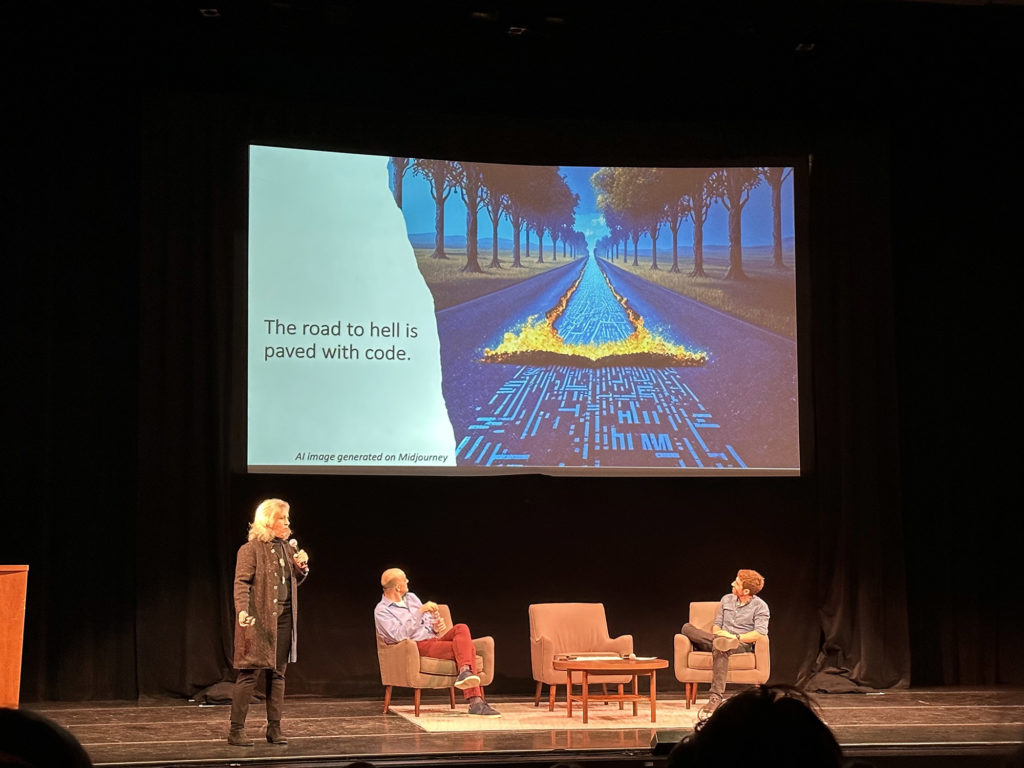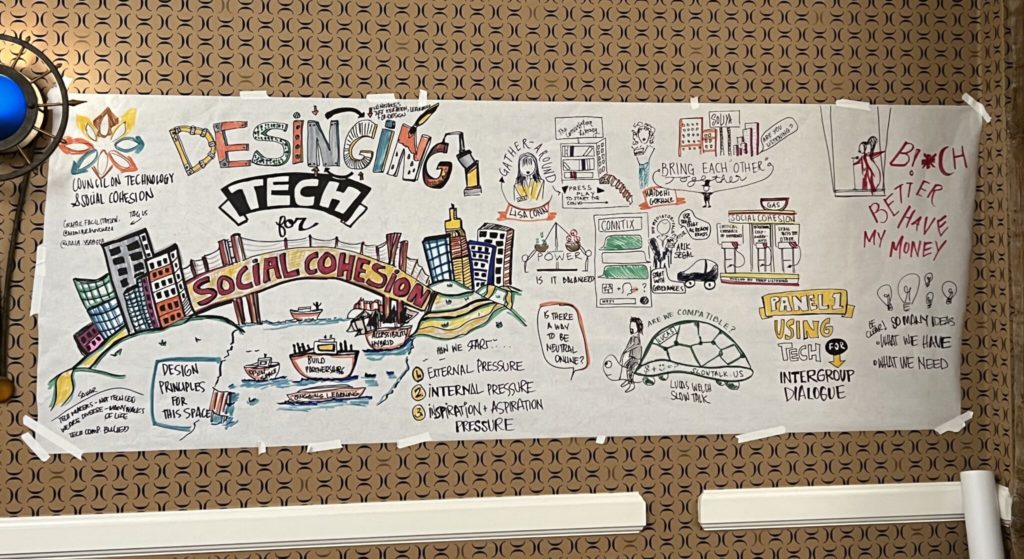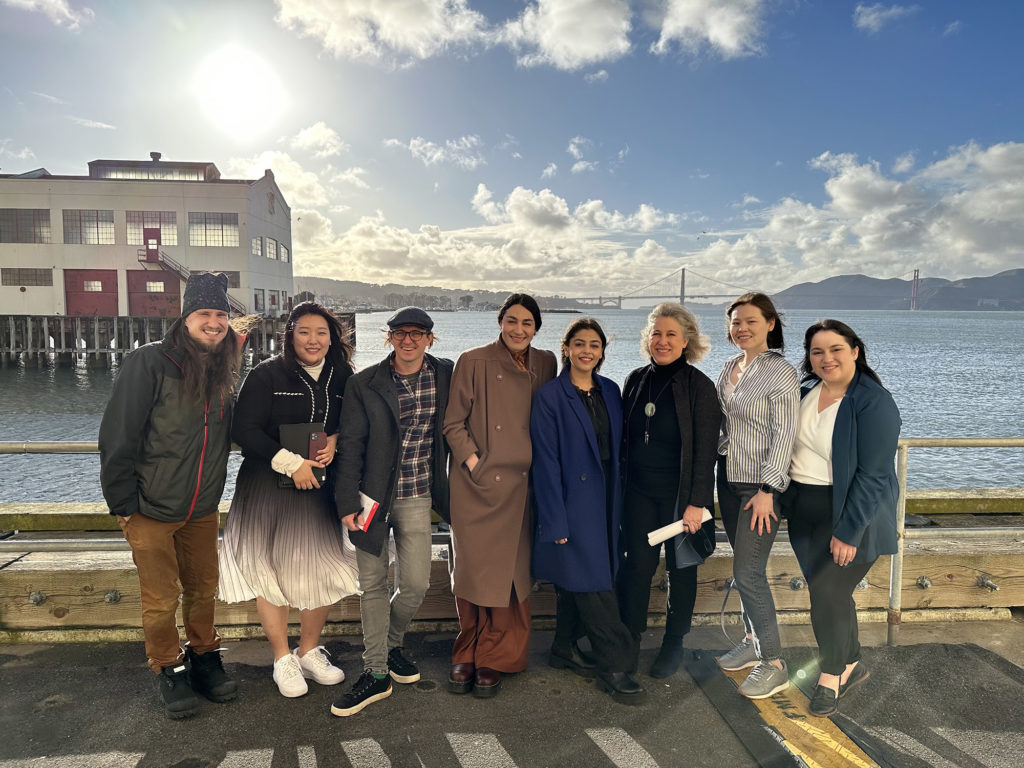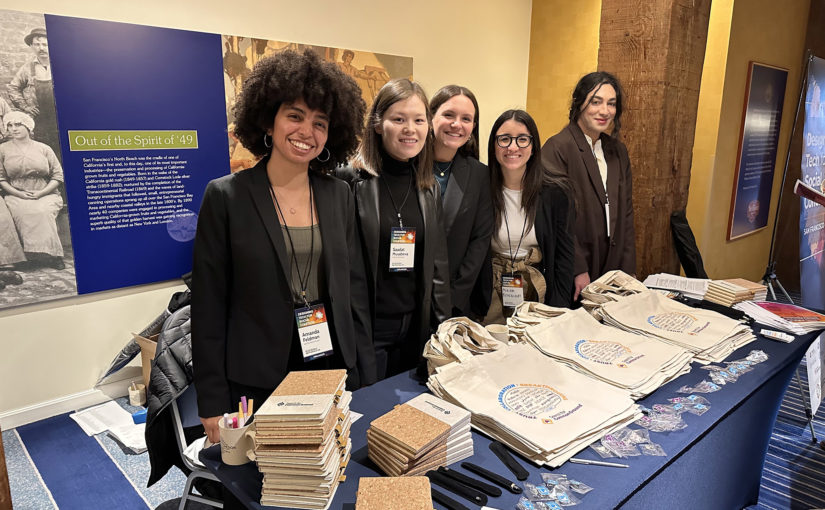By Fatima Faisal Khan and Nicolas Chehade
In February, we traveled to San Francisco to attend the conference “Designing Tech for Social Cohesion.” This three-day event was the first of its kind as it created a space for the peacebuilding community to interact with the tech sector and find ways where the two sectors can work together. Organized by Prof. Lisa Schirch, the Center for Humane Technology, and Search for Common Ground, the event brought together an eclectic group of leaders, innovators, and concerned stakeholders with the vision to create a space for collaboration, and to find a shared language by which these two otherwise disparate sectors can converse with one another.

The conference focused on addressing the increasing polarization, algorithmic bias, misinformation, and disinformation that pose a threat to social cohesion today. Exceptional panelists offered insightful ideas, drawing on their experiences in dealing with issues that pose a challenge to peacebuilding in the ever-evolving technological landscape. In particular, the opening event on Thursday generated a discussion on the ways that peacebuilding organizations such as Search for Common Ground, the Center for Humane Technology, and the UN Office of Peacebuilding and Political Affairs can collaborate with tech companies such as Pol.is, Remesh, and the Integrity Institute.
The presence of key stakeholders from both tech and peacebuilding allowed for fruitful discussions not only in the event halls, but in the breakout sessions and during networking breaks, where we saw people get together based on shared interests and find ways to collaborate. Given that this is exactly what Prof. Schirch had envisioned with this conference, we were happy to see this space be constituted successfully.

One of the key challenges discussed on Day 2 was the lack of standardized indicators and metrics for measuring social cohesion, both online and offline. While some international organizations like the Council of Europe and OECD have made public commitments to social cohesion, there is still a need for more comprehensive frameworks that can effectively measure individual attitudes, emotions, and perceptions towards other groups. Several existing tools and indices, such as the UN Development Program’s SCORE, and the Ipsos Social Cohesion Index, measure social cohesion through surveys on life satisfaction, trust between groups, and civic engagement.
To address the challenge of measuring social cohesion, the conference discussions proposed a framework that focuses on user behaviors rather than perceptions or assertions. The framework identifies individual agency as a critical metric for measuring social cohesion online. This metric measures the willingness of individuals to participate in digital discussions and considers the ratio of engaged vs observing individuals.
Participation inequality is a common phenomenon in digital platforms, where a small percentage of users create content while the majority only consumes it. Another important suggestion from the conference is measuring individual agency, which could be refined by conducting more research on digital lurkers, participation inequality, and the link between digital use and political participation.
For us, what set this conference apart was its very practical aim to devise a strategic plan of action on the last day of proceedings. As students from Notre Dame’s Kroc Institute for International Peace Studies and Keough School of Global Affairs, we continue to learn about the importance of conflict and stakeholder mapping, assessment and planning in setting realistic and tangible goals. To see a room full of experienced leaders come together and make a well-thought out and insightful plan on how to keep this movement alive was a great learning experience for us. The conference highlighted the need for ongoing collaboration and research to design technology that promotes social cohesion and builds bridges across diverse groups.

As much as we enjoyed listening to all the wonderful speakers share their important insights, this opportunity also allowed us to have hands-on experience with planning and executing a large-scale event successfully. We are indebted to Prof. Schirch and the team at Search for Common Ground for trusting us with this important work, and would like to thank our peers Emma Jackson, Eunhye Lee, Saadat Musabaeva, Nik Swift, Grace Connors and Miriam Bethencourt, Prithvi Iyer, and Wesley Hedden for their relentless hard work throughout the conference.
We are so glad we got to share this experience with a brilliant group of future changemakers! We believe that the discussions and ideas generated during the conference will lead us towards a more peaceful and cohesive society. The challenges we face today are daunting, but the conference gave us hope that we can work together to overcome them. It is imperative that we continue these conversations and collaborations beyond the conference room; and to make all concerned individuals a part of this movement. You can become a part of this very important conversation by joining the Council of the Technology and Social Cohesion’s mailing list for updates.
Photos by Saadat Musabaeva.

